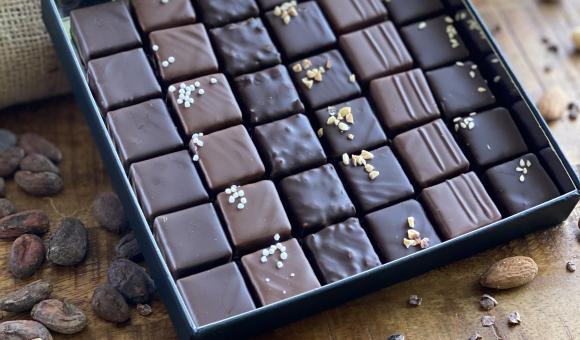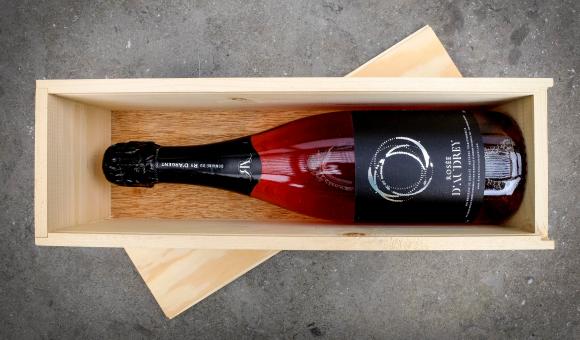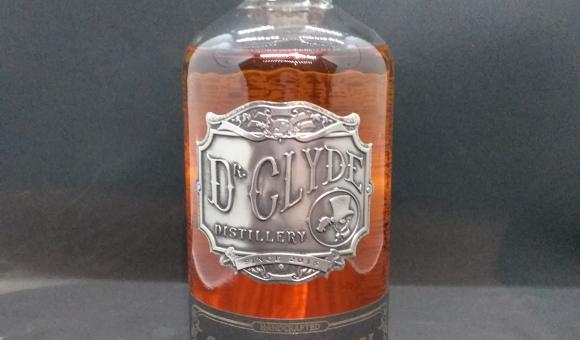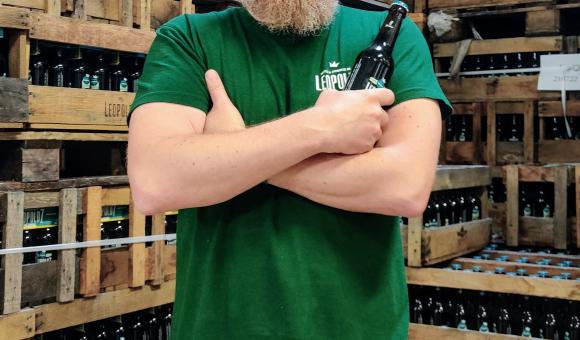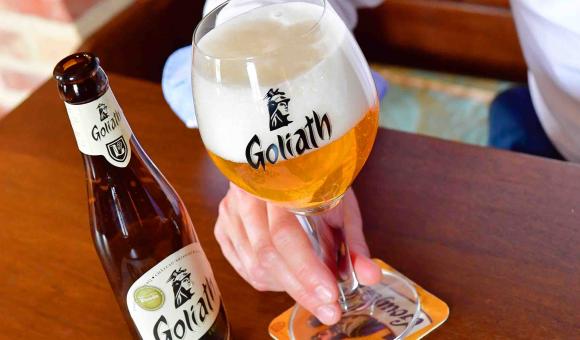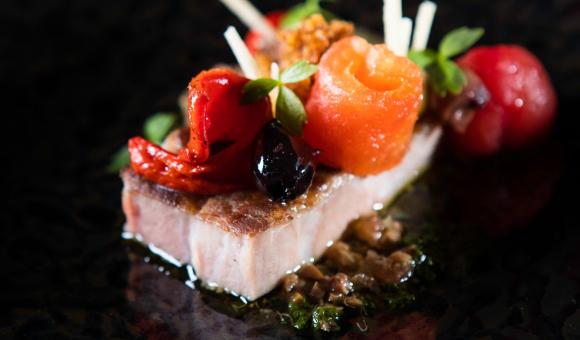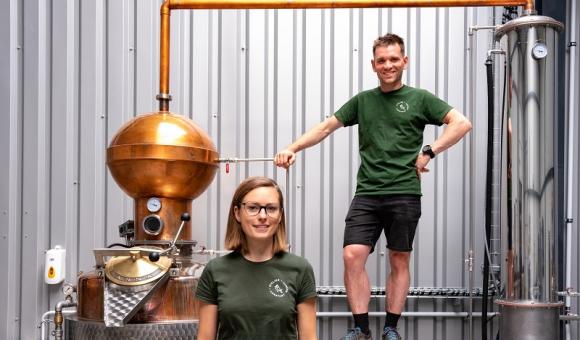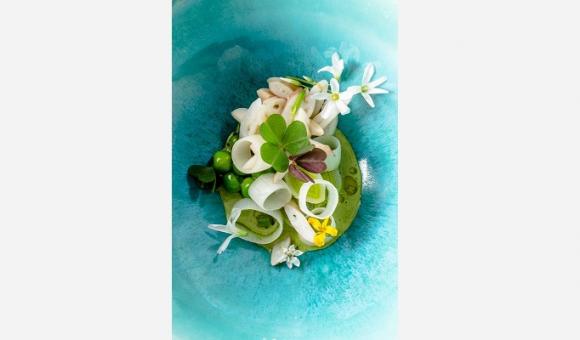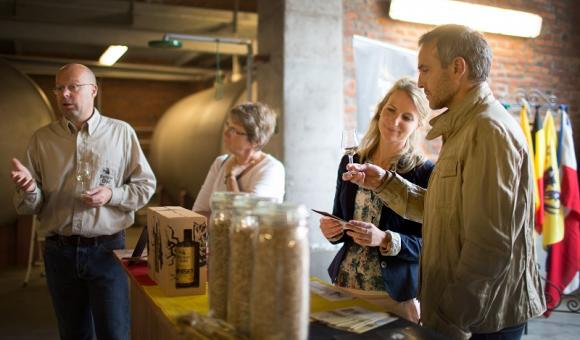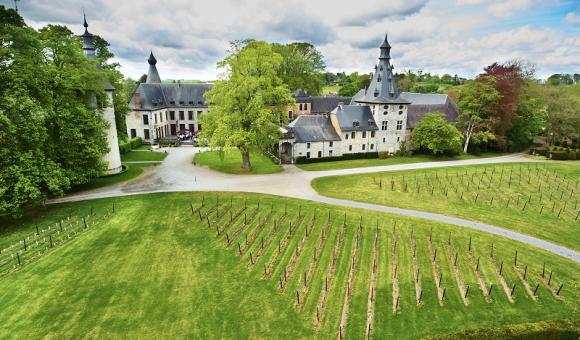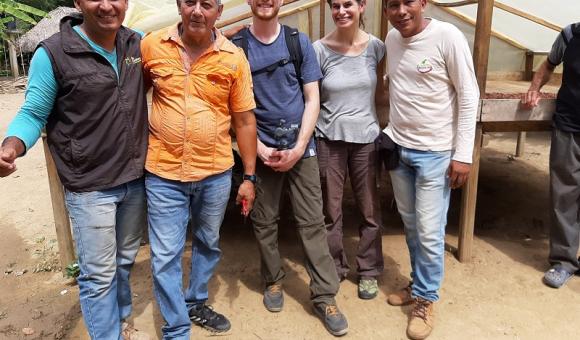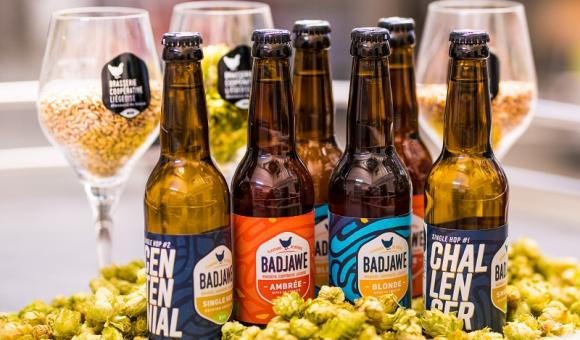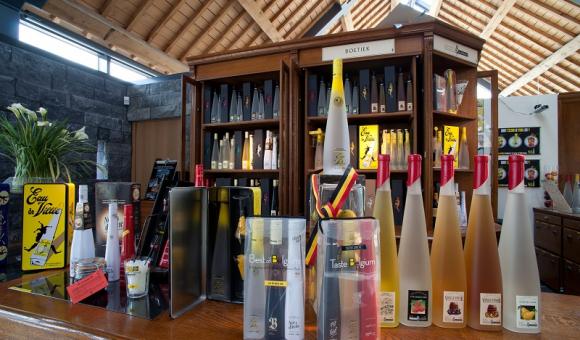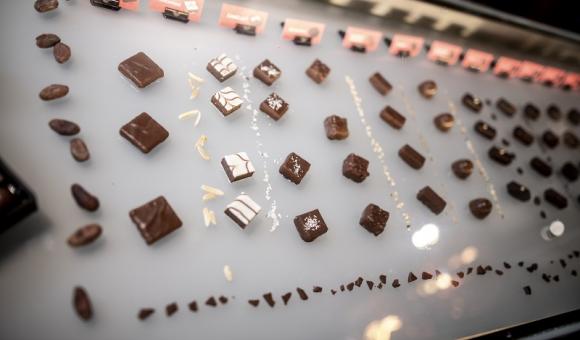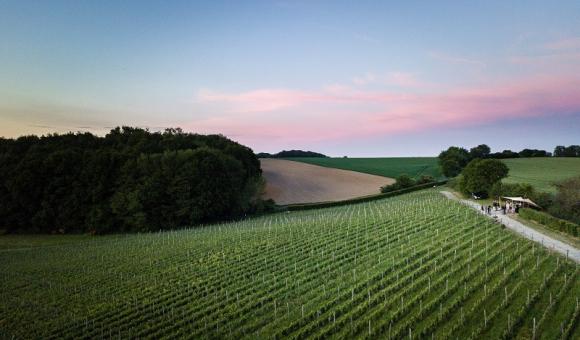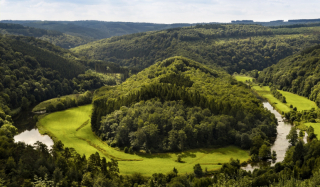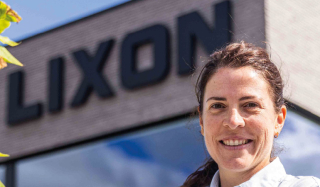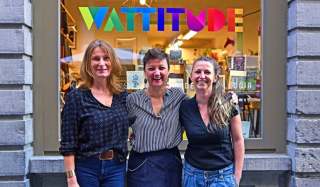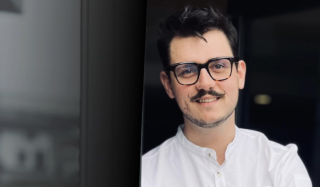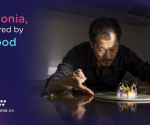Short circuits and organic products are increasingly popular in Wallonia. Many Walloon producers are now taking this sustainable path: chocolate makers, wine makers, brewers, distillers... and restaurant owners. Bistronomy and local dishes are all the rage. There are environmentally friendly gourmet treats to be (re)discovered all over Wallonia.
In the current extraordinary period, everyone has become aware of the vital importance of short-circuits and good seasonal products. Just a stone's throw away, craftspeople, producers and restaurant owners in Wallonia are producing their delicious, often organic products, with a love of work well done
Ethical chocolates
There are many chocolate makers in Wallonia who obtain their supplies directly from local producers. Didier Smeets, in Dalhem, obtains his cocoa beans from where they are produced, as the chocolate shop has a Bean-to-Bar line, or selects small manufacturers for the finished product. The young craftsperson was one of the three finalists in the RTPF programme La meilleure bûche de Noël, and the only chocolate maker in the competition.
In Ciney, for her chocolate shop Sigoji, Euphrasie Mbamba also obtains supplies of high quality cocoa produced in fair conditions. She works with beans from Africa, some of which come from the family-run plantation in Cameroon, to make "the most blended pralines there are," she says. Elected "best craftsperson in the province of Namur" in 2017, and "best chocolate maker in Wallonia" in 2018 by Gault&Millau, the chocolate maker is a member of the 'Club Chocolatiers Engagés' (committed chocolate makers' club).
Less than a year after opening his chocolate shop in Andenne, Ariqua Denis was elected "2020 Wallonia chocolate maker" by Gault&Millau. To make his pralines, this craftsperson uses high quality products, hazelnuts from Piémont, farm butter, coffee from Costa Rica, and Fairtrade cocoa.
In Ittre, Arnaud Champagne (a name predestined to work with edible products!) has once again been named one of the "best chocolate makers in Belgium and Luxembourg" by Gault&Millau.
Thibaut Legast, in Braine-le-Comte, makes chocolate from beans that he sources from small local producers in Latin America.
Bernard Schönmacker, in Barchon, also creates ethical and sustainable products.
Organic goji berries made in Wallonia
More surprisingly, did you know that goji berries are grown in Wallonia? At Délices d’Angélique, in Marneffe, on a microfarm in the heart of the Burdinale natural park, Angélique Gouppy grows goji berries and raspberries organically and artisanally, and then turns them into jams, jellies and dried fruits. The berries are also used to decorate the chocolates made by her artisanal chocolate maker husband. This small red stoneless fruit, the size of a raisin, originates in south-east China, where it has been used for its medicinal properties for thousands of years. "Our family already ate them, so why not grow them in an organic field?" she asked herself. The seeds germinated, the first crop was in 2012 and the plantation soon had 1,000 plants, to which she added raspberry bushes. "My operation is environmentally friendly and I invite everyone to come and see it; the doors are open on Saturdays from 2pm to 6pm."
More and more vines
Vines grow almost like mushrooms in Wallonia. As a nature lover, Michel Verhaeghe de Nayer has dedicated the Château de Bousval, a family property purchased in 2004, to vineyards. With chardonnay, pinot noir and pinot gris grape varieties, planted in 2014 on just over five hectares, the vineyard has been certified organic since January 2021 and is farmed biodynamically. The new contemporary style wine warehouse blends into the background not far from the vines. Some 10,000 bottles from the 2018 vintage were released in spring 2020 and new plantations are planned.
Another vineyard in Walloon Brabant is the Domaine de Mellemont, four hectares of traditional grape varieties in Thorembais-les-Béguines. It was created in 1993 by pioneering wine grower Pierre Rion, then head of the company IRIS and now Chairman of the Association des Vignerons de Wallonie (Wallonia Wine growers' Association).
It does not take long to travel from Walloon Brabant to the province of Namur to visit Belgium's leading red wine producer, the Domaine du Chenoy. Created in 2003 in Emines - La Bruyère by Philippe Grafé, a major wine trader in Namur for 40 years, it was taken over in 2018 by brothers Pierre-Marie and Jean-Bernard Despatures, who joined forces with Fabrice Wuyts to further develop the 14 hectare domain to produce an average of 55,000 bottles. The first certified organic vintage was produced in 2019. The objective is to encourage original, organic and local production with wines that embody the flavours of Wallonia.
A stone's throw away, the Domaine du Ry d’Argent is a recent vineyard, created in Bovesse by Jean-François Baele, the son of a family of farmers, on a south-facing slope. Several red varieties and one white from Germany grow on its 7.5 hectares. Around 50,000 bottles are produced from its barrels, depending on the year.
Further south, on the family-run domain of Château de Bioul, Andy and Vanessa Wyckmans-Vaxelaire have achieved their dream of becoming wine-growers. The first vines, planted in 2009, are varieties from Germany. Eleven hectares of vines have now brought the hillsides back to life, and new varieties were planted recently to make white and sparkling wines. The domain produces 15 to 50,000 bottles, depending on the year. The vineyard received organic certification in 2020.
In the far west, in Haulchin, near Binche, the Vignoble des Agaises, the product of a wine merchant, a farmer and a wine grower from Champagne, was founded in 2002. It has 300,000 Chardonnay, pinot noir and de pinot meunier vines growing on its 30 hectares. The largest wine producer in Belgium, the domain produces an average of 100,000 bottles a year of sparkling wines made using the traditional method, under the name Ruffus.
At the other end of Wallonia, in the Geer and Meuse valleys, 12 hectares of red and white grape varieties have been planted. The Vin de Liège Cooperative, founded in 2010 and managed by Fabrice Collignon, project initiator and Chair of the Management Board, Alex Bol, managing director, and Romain Bevillard, a French wine grower, produced its first harvests in 2014. The first 25,000 bottles were produced in 2015. The ultimate objective is to produce more than 100,000 bottles a year.
Walloon single malt and rum
Even the whisky aims to be local. To use the barley grown in Hesbaye, distiller Etienne Bouillon created a "Belgian Single Malt Whisky". The first bottles of this Belgian craft whisky were produced in 2007. In 2011, this single malt whisky with its flavours of Wallonia was elected European Single Cask Whisky of the Year in Jim Murray's Whisky Bible. The Owl Distillery can now supply the Belgian and foreign markets.
At the other end of Wallonia, the Distillerie de Biercée, founded in Thuin in 1946, is one of the oldest Belgian distilleries still in operation; it produces 100% natural eaux-de-vie and liqueurs, and other products such as Gin de Binche and a few beers, and is growing on the Belgian and export markets.
More surprisingly, the first Walloon rum production began in Trois-Ponts, in 2015. Pierre-Yves Smits founded Dr Clyde’Spirits, which produces rum from organic Fairtrade molasses from South America, as well as gin, absinthe and a brown sugar-based alcohol.
In Battice, a pleasant young couple called Léandre and Adeline Constant-Berger, have founded the Atelier Constant-Berger and produce eaux-de-vie, fruit juices and cider from the fruit of standard orchards in the Pays de Herve.
Near Havelange, the Cidrerie du Condroz, a cooperative with a social purpose, produces ciders and other aperitifs.
Ethical and local beers
Brasseries also love short circuits. In Hainaut, the Brasserie des Légendes, managed by Pierre and Vinciane Delcoigne, claims its local roots by focusing on regional folklore, such as the Ducasse d’Ath parade and the Sabbat des sorcières d’Ellezelles festival. It practises short-circuits by producing its own barley, recovers heat, has a water purification station and uses solar energy from photovoltaic and thermal panels.
In Couthuin, the Brasserie Léopold 7, founded by Nicolas Declercq in 2013, creates new craft beers using local produce, short circuits and sustainable values: water treatment, Belgian malt barley, integrated pumps and solar panels, and also produces 100% recyclable aluminium cans and silica bottles that use very little energy, in collaboration with sheltered workshops.
On the site of the Ferme à l’Arbre in Lantin, Brasserie coopérative liégeoise, which created the region's first organic beer, favours short circuits, local organic raw materials and the social and solidarity-based economy.
Green stars and sustainable delicacies
The Michelin Green Star rewards ambitious chefs who are committed to sustainable gastronomy. One of these is Sang-Hoon Degeimbre, chef at L’Air du Temps, in Liernu; his vegetable garden provides 95% of the restaurant's vegetables. "We work a lot with lacto-fermentation, which is symbolic of current concerns relating to taste and the reduction of food waste, and healthy food".
Near Namur, at the Atelier de Bossimé, the gastronomic and bistronomic short circuit cuisine gives diners a taste of the local land. It is a creative and seasonally inspired concept. "Everything on the plate comes from local producers whom we know," said chef Ludovic Vanackere. "Our co-working makes sustainable food accessible to everyone. Our aim is to use our 100 hectares of fields for food. Sustainability is a question of common sense."
In Gembloux, Stefan Jacobs, at Hors-Champs, believes that he works in the opposite way to in the past. "We look at what our vegetable garden and regional suppliers have to offer and create our menu from that. We also find this sustainable vision in our operations, for example the replacement of our plastic films with an ecological alternative."
Chef Arabelle Meirlaen, in Marchin, attaches a great deal of importance to healthy food. "The garden is my inspiration. My husband and I are both the children of farmers, so sustainability is natural to us. This is why we try to be as autonomous as possible, with 75% of our fruit and vegetables coming from our garden, for example."
Génération W is inspired by the same spirit. This association brings together chefs who highlight products from short circuits and the Walloon culinary heritage, fully respecting the seasons and authentic modern techniques. This is the case with Christophe Pauly, in Tinlot, Gault&Millau's "Chef of the Year 2021". "This title reinforces our idea of the cuisine and restaurant we want to create in Le Coq aux champs: simplicity, conviviality, sharing, empathy, good work and good products."
Do you know the Bistrots de terroir? To have this label, an establishment must offer at least three local products and, in the restaurant, a locally sourced dish. Visitors will also find tourist information so that they can discover everything the region has to offer. Many establishments in Wallonia display this label at their entrance. For example, the restaurant of Olivier Noël, chef at Moulin Cambier, in Chiny, in the province of Luxembourg, a region with several typical products, such as beer from the Abbaye l’Orval, its cheese and "maitrank" (May wine). Conviviality, nature and good products are the keywords for these bistros.
What these many Walloon delicacies have in common is that they have chosen responsible production and consumption, goal 12 of the 17 Sustainable Development Goals (SDG) of the UN's 2030 programme. Wallonia has committed to achieving these goals by 2030. And with these producers, it is well on the way to doing so.
Two new maps, "89 breweries to visit in Wallonia" and "46 vineyards and distilleries to visit in Wallonia", are already available for download from the Visitwallonia.be/gourmandise website and paper versions will be available this spring.
Another website, je cuisinelocal.be, by Apaq-W, lists many Walloon producers and craftspeople.
By Jacqueline Remits
This article is from the W+B Magazine n°151.
